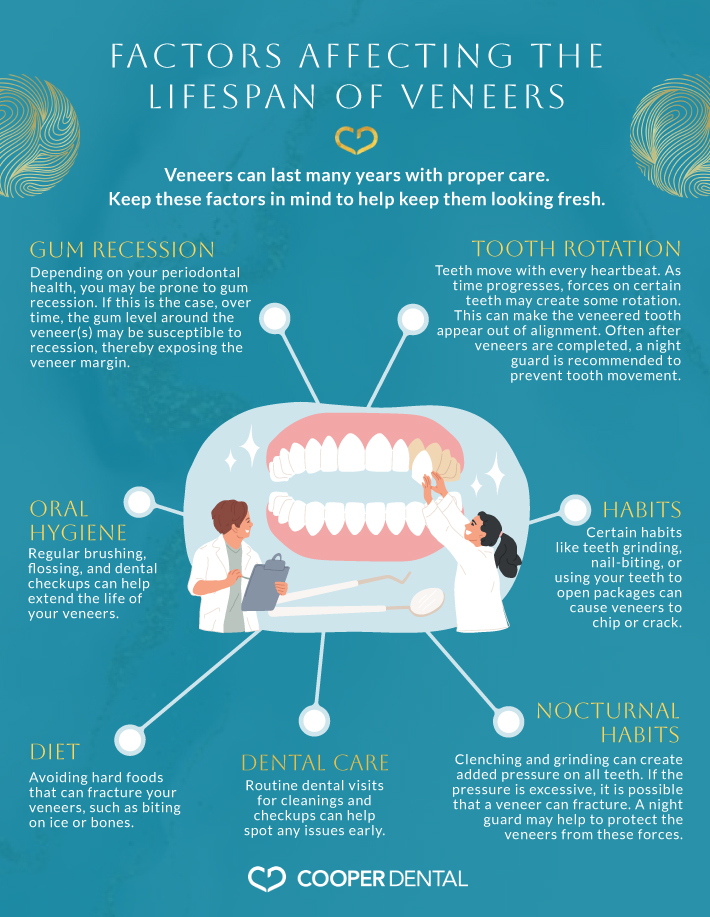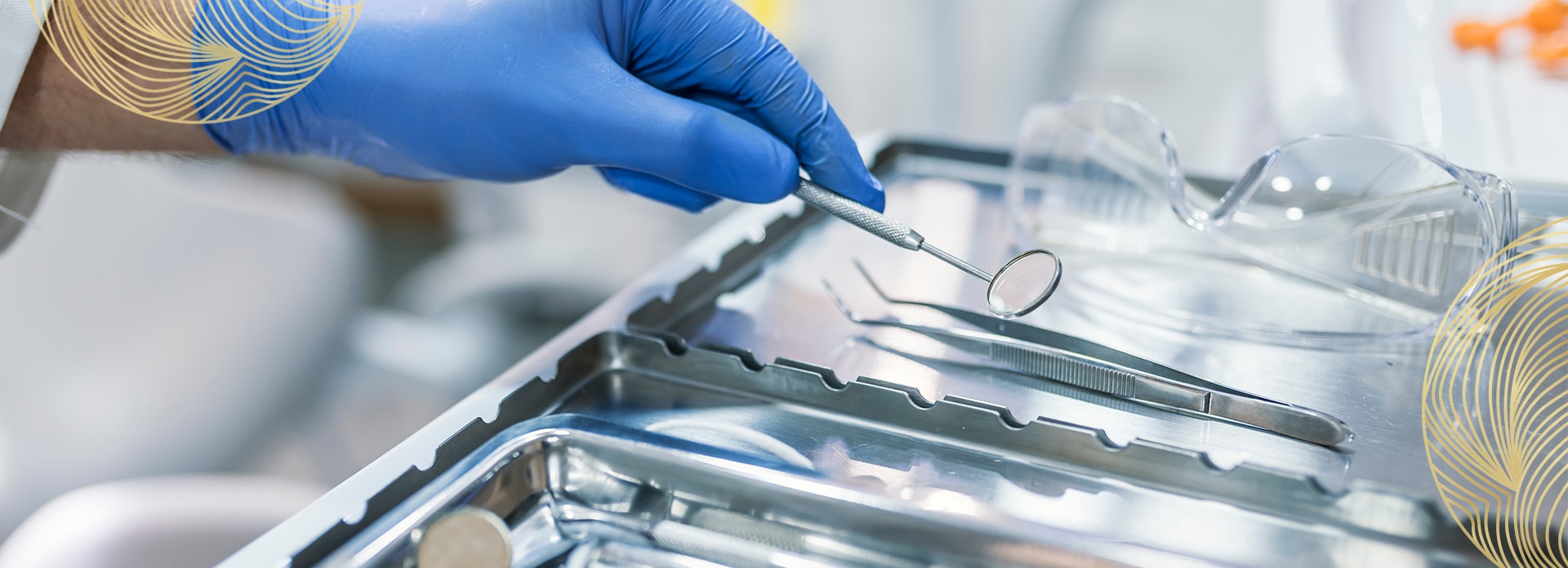Veneers are a popular choice for many seeking to enhance their smiles. These thin, tooth-coloured porcelain facings are custom-made and bonded to the front surface of teeth to improve the appearance of crooked, discoloured, or damaged teeth and produce a brighter, straighter smile.
Veneers are permanent, and the process can’t be reversed. While veneers can typically last 10–15 years with good care, they may eventually need replacing due to wear, damage, gum recession, or tooth rotations that occur over time.
What Are Veneers?
Veneers are custom-made to match the colour and contour of your natural teeth to cover the front surface and improve the appearance of teeth that are too small, misshaped, chipped, discoloured, or have gaps.
Veneers come in different materials, including:
- Porcelain or ceramic veneers: These are crafted from high-quality ceramic materials, offering a highly natural appearance and strong resistance to stains and wear.
- Composite or plastic veneers: Composite resin veneers can be an option in some situations, however they tend to have a shorter lifespan as the material is porous, making it more susceptible to staining and chipping. For this reason, this type of veneers may be used as a more temporary or transitional option.
The veneer process typically involves:
- A consultation with your dentist to discuss your goals and examine your teeth.
- Reshaping the teeth, where a small amount of enamel is removed from the front of the tooth surface.
- An impression of your teeth to create a model for crafting the veneers.
- Cementing, where the veneers are permanently affixed to your teeth using dental bonding cement.
Factors that Can Affect the Lifespan of Veneers
Like any dental procedure, their success relies on a long-term commitment to proper care. Here are some key factors that can significantly influence the lifespan of your veneers:
- Oral hygiene: Maintaining good oral hygiene is crucial. Regular brushing, flossing, and dental checkups can help extend the life of your veneers.
- Diet: Avoiding hard foods that can fracture your veneers, such as biting on ice or bones.
- Habits: Certain habits, such as teeth grinding, nail-biting, eating ice, or using your teeth to open packages, can cause veneers to chip or crack.
- Gum Recession: Depending on your periodontal health, you may be prone to gum recession. If this is the case, over time, the gum level around the veneer(s) may be susceptible to recession, thereby exposing the veneer margin.
- Tooth rotation: Teeth move with every heartbeat. As time progresses, forces on certain teeth may create some rotation. This can make the veneered tooth appear out of alignment. Often after veneers are completed, a night guard is recommended to prevent tooth movement.
- Nocturnal habits: Clenching and grinding can create added pressure on all teeth. If the pressure is excessive, it is possible that a veneer can fracture. A night guard may help to protect the veneers from these forces.
- Dental care: Routine visits to your dentist for professional cleanings and inspections can help catch any issues early.

When Do Veneers Need Replacement?
While veneers are durable and can last for many years with proper care, there are instances where replacement may be necessary. If a veneer needs to be replaced within a short period of time, it may be just one. If this is required, it is possible to create a seamless match with the neighbouring teeth.
However, if over time multiple veneers need replacement, the original process will simply be repeated, including removal of the existing veneers, refining the tooth surface, and crafting new veneers to restore your smile.

How Do Veneers Differ from Crowns?
The key differences between veneers and crowns lie in their purpose and the amount of tooth modification required.
Veneers are best for cosmetic improvements with minimal tooth alteration, while crowns are necessary for more extensive repairs, offering full coverage, structural support, and helping improve the bite. Your dentist will recommend the best option based on the condition of your teeth and your specific dental needs.
Veneers:
- Are primarily cosmetic
- Improve the appearance of discoloured, chipped, or minimally misaligned teeth
- Are a minimally invasive procedure
Crowns:
- Are primarily for protecting or restoring a tooth and are also used in cosmetic scenarios
- Are used when a tooth is significantly damaged, decayed, or after a root canal procedure
- Can provide full coverage for damaged teeth
Talk to the Cooper Dental Team About Veneers
Veneers offer a fantastic way to enhance your smile, but while they are designed to be long-lasting and resilient, there may come a time when they need refreshing.
Call our dental team at Cooper Dental for personalized advice and to explore whether veneers are right for you. We are here to help you make an informed choice about your dental care.




